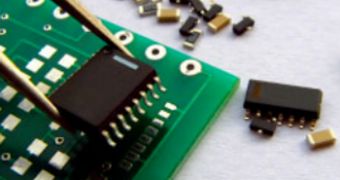The Japanese earthquake is already affecting sales of the iPad 2, IHS iSuppli research indicates, with as many as five key components comprising the tablet being manufactured (partially or entirely), in Japan.
The research firm said in a report published yesterday that Apple is likely to encounter logistical disruptions and supply shortages because of hard-to-replace electronic components like “the compass, the battery and possibly the advanced technology glass in the display.”
IHS iSuppli names a few Japanese suppliers that have been affected by the March 11 earthquake, including Toshiba, which makes the much-needed NAND flash in the iPad 2, Elpida Memory Inc. which provides the dynamic random access memory (DRAM), AKM Semiconductor - responsible for the compass.
Additional manufacturers named in the report include Asahi Glass Co., a company “likely” responsible for the touch screen overlay glass of the iPad 2, and Apple Japan Inc. (a subsidiary of Apple Inc.), which crafts the high-performance 10-hour battery found inside the second-generation tablet computer.
“There potentially are other components from Japan in the iPad 2, however, the teardown analysis process cannot always identify all components’ countries of origin,” iSuppli said.
“While some of these suppliers reported that their facilities were undamaged, delivery of components from all of these companies is likely to be impacted at least to some degree by logistical issues now plaguing most Japanese industries in the quake zone,” the report said.
Japanese semiconductor facilities that have suspended their operations need to ensure they’ve weathered the aftershocks, therefore are not likely to start working at normal parameters too soon.
“Earthquakes ranging from 4 to 7 on the Richter scale will make it impossible to really restart these fabs until the earthquakes stop happening with such frequency,” said Dale Ford of IHS. “Every time a quake tops 5, the equipment automatically shuts down.”
The analytics company outlines that such news couldn’t have come at a worse time for Apple, as the company was already struggling to fulfill unexpectedly high demand for its just-launched iPad 2.

 14 DAY TRIAL //
14 DAY TRIAL //